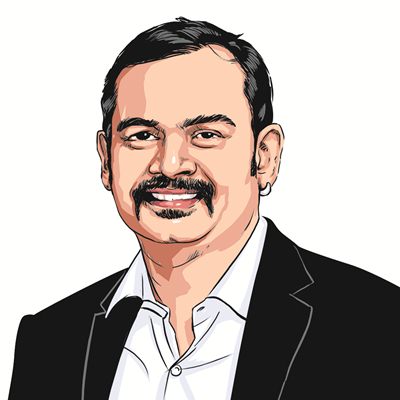Decode Politics: Amid PM Modi’s pitch for local governance in Manipur, a look at Kuki-Zo demand
Before ethnic strife, “empowered hill councils” was on the table in Centre’s talks with Kuki-Zo insurgent groups; Kuki-Zos are now demanding a “separate administration” in the form of UT with legislature
 Kuki-Zo groups have demanded a separate administration for the hill tribes.
Kuki-Zo groups have demanded a separate administration for the hill tribes. Addressing a public meeting in the Kuki-Zo-dominated Churachandpur last Saturday during his first visit to Manipur since the onset of ethnic conflict in the state in May 2023, Prime Minister Narendra Modi spoke about strengthening local bodies of governance.
The PM’s statement was seen by many as his promise to empower the virtually defunct hill councils or autonomous district councils (ADCs) in the state.
Under the Meitei-dominated polity in Manipur, the hill councils have become toothless over the years. This has given rise to the growing demand of separate administration by hill tribes. Meiteis have been strongly opposed to this demand by Kuki-Zos, especially after the start of their conflict.
However, the PM’s pitch for strengthening local governance could give the Centre a middle ground to negotiate with Kuki-Zos.
What was the PM’s statement?
In his Churachandpur address, PM Modi said, “I am aware of the dreams and struggles of the tribal youth of Manipur. To address your concerns, work is happening at different levels. It is the government’s effort that local body governance is strengthened. Appropriate funds are being arranged for the development of local bodies. The development of every tribal community is a priority for the country.”
The PM’s statement, official sources said, was a reiteration of the proposed solution that the Centre has always had for lasting peace in the state.
“It is still on table (granting Manipur ADCs similar to ADCs under Sixth Schedule). However, given how the ethnic violence has reshaped sentiments both in the valley and the hills, this is now going to take time. Also, there is a view that it is best ushered in through a political government in Manipur so that it is achieved with everyone’s agreement and is stable,” a Union government official said.
Had hill councils been part of talks?
Before the ethnic strife erupted in Manipur, a “separate administration” in the form of “empowered hill councils” was on the table for the Centre’s peace talks with 24 Kuki-Zo insurgent groups under the Suspension of Operations (SoO) agreement. Sources told The Indian Express that this deal was actually headed towards conclusion before the ethnic violence scuttled it.
The peace talks had then settled upon the module of providing “territorial councils” to the tribes of Manipur. The Kuki-Zo groups had asked that the 10 hill districts, which are dominated by Kuki-Zo and Naga tribes, be divided into two separate territorial councils for the respective communities.
The then Biren Singh-led BJP government in the state had proposed 10 territorial councils – one for each district. The Centre, however, had proposed a division of 2-2-1 territorial councils for Kuki-Zos, Nagas and other tribes, which was backed by the Kuki-Zo insurgent groups.
However, as ethnic clashes spiralled in Manipur, Kuki-Zos started demanding a “separate administration” in the form of a Union Territory (UT) with legislature.


What stances Kukis, Meiteis have taken?
In the prevailing tense atmosphere, the idea of territorial councils is a solution not agreeable to either side of the ethnic divide in Manipur.
Speaking to The Indian Express, Kuki-Zo Council (KZC) spokesperson Ginza Vuelzong rejected such an idea as an attempt to “bargain down our rightful demands”.
“Our people have lost all trust in local governance. In the past, the majority community, the Meiteis, held our autonomous district councils hostage, repeatedly denying us the right to conduct elections for our local bodies. The Hill Areas Committee in the Manipur Assembly was reduced to a toothless institution, stripped of power and purpose,” Vuelzong said.
Underlining how Kuki-Zos endured “relentless suffering” during the recent ethnic clashes, Vuelzong said, “Our people have been killed, our homes and churches burnt, and our community driven out of the Imphal valley, leaving us permanently separated. In such a reality, local governance is no remedy. Our issue can only be resolved through a genuine political solution — one that ensures complete separation from Manipur.”
In its June 30 meeting with the representatives of the Ministry of Home Affairs (MHA), a delegation of various Meitei civil society groups from Imphal pressed for maintaining Manipur’s territorial integrity.
“The delegation unequivocally reaffirmed its non-compromising stance on any initiative that could undermine the territorial integrity of the state. This principle remains sacrosanct to every Manipuri,” the delegation said in a statement.
Reacting to the PM’s Churachandpur reference to local bodies, Khuraijam Athouba of the Coordination Committee on Manipur Integrity (COCOMI), an influential Meitei civil society organisation, told The Indian Express: “Strengthening local governance is important, but it should not translate into creating parallel political structures that undermine Manipur’s unity. Devolution of powers for development and administration is one thing, but anything that fuels separatism or encourages exclusivity will be strongly opposed.”





